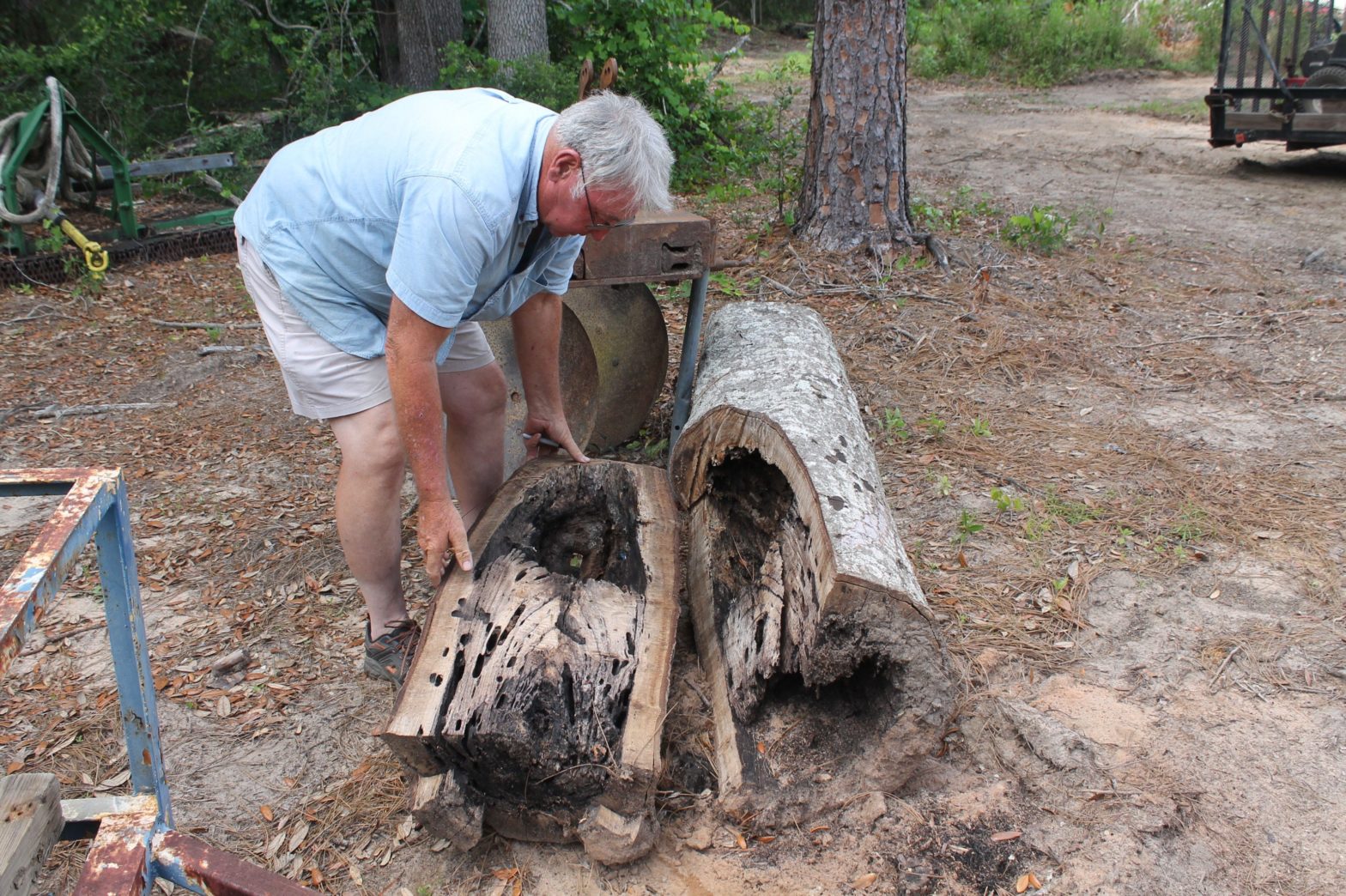![Santa Rosa Beekeepers Association Vice President Bill Blankenship received a call on a hollow tree with honeybees near the paper mill north of Cantonment. When he cut the log open, he found it infested with small hive beetles, a common pest of honeybees, according to Blankenship. [AARON LITTLE | Press Gazette]](http://127.0.0.1/wordpress/wp-content/uploads/2022/01/ghows-DA-4fdf1a63-6722-076e-e053-0100007fd878-9d7cd0b5-scaled.jpeg)
MILTON — Santa Rosa Beekeepers Association Vice President Bill Blankenship is one of roughly 85 registered beekeepers in Santa Rosa County and he says many beekeepers have reported an increase in colony loss since 2016.
“I lost over 50 percent of my hives,” he said.
The loss of bees directly affects the national food supply. Honey bees enable the production of at least 90 commercially grown crops in North America, according to a press release from the U.S. government.
This is a significant problem for Florida since the nation’s honeybee pollinators primarily come from the Sunshine State, according to Blankenship.
Growers around the country rely on beekeepers who ship their bees to various states for pollination.
So, what's the impact of a honeybee shortage? It's significant, according to experts.
“The average American may experience increased food prices and decreased food availability if honeybees continue to die at the current rate,” Dr. Jamie Ellis, University of Florida Institute Institute of Food and Agricultural Sciences entomologist wrote in 2003 and updated in 2013.
“If all of the bees are going to California for almond pollination, what will happen to apples in Washington, the blueberries in Maine, the citrus in Florida? This loss of bees could begin a price war in the pollination industry, resulting in growers being forced to pay higher rent prices for bee colonies. The net effect is that the consumer will have to pay a higher price for the food that they currently enjoy. In the worst case scenario, food availability will begin to decrease as honey bees die.”
“It’s going to be a problem in a larger portion that is going to be noticeable,” Blankenship said in a 2016 Press Gazette article. “I am already paying $1 for a tomato. We could be paying $5 or $6 for a tomato, pear or apple, just because we don’t have pollinators.”
While beekeepers are working on ways to combat pests that kill honeybee hives like the varroa mite, the wax moth, and the small hive beetle, everyone can help the honeybees by avoiding killing them with pesticides.
“If you’re using pest control, spray in the evening when bees have stopped foraging,” Blankenship said. “If there are apiaries in the area, be bee-friendly and notify the beekeeper that you’ll spray the area so they’ll have a chance to screen the hives or transfer them to another area.”
Call the Santa Rosa Beekeepers Association at 232-6005 to request a beekeeper to handle any bee removal.

This article originally appeared on Santa Rosa Press Gazette: Honeybee colony loss has deep impact
